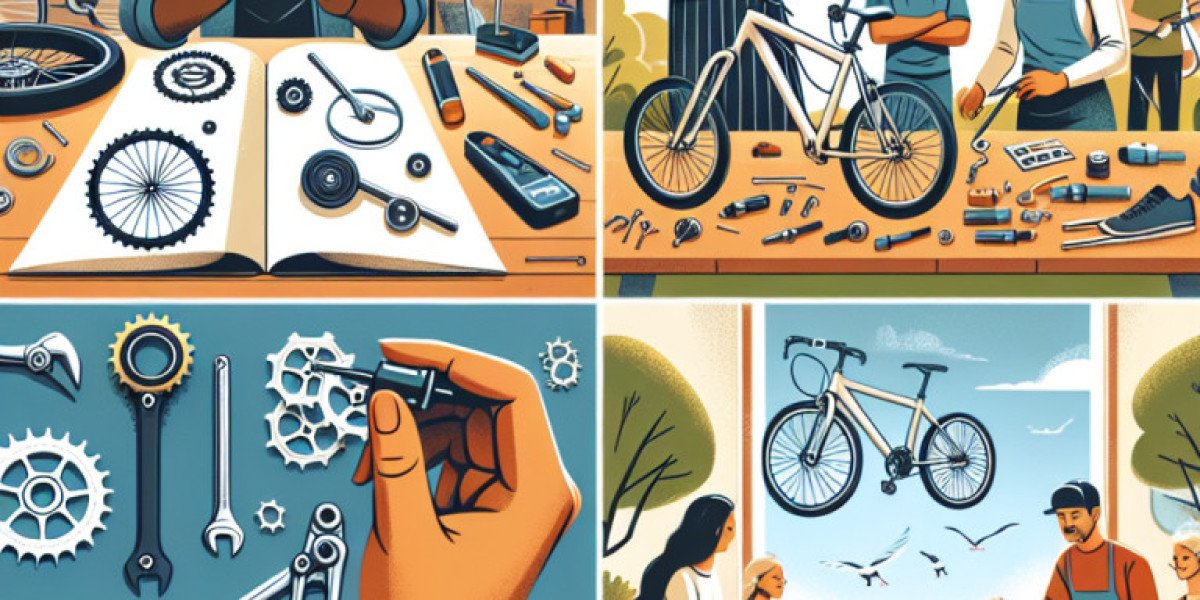Navigating the World Without a Driver's License: Exploring Alternatives and Implications
In today's world, where movement is a cornerstone of life, the idea of living without a driver's license might seem complicated. However, for some people, the choice to pass up a driver's license is a conscious option driven by various factors, including environmental concerns, expense, and individual choice. This short article explores the options to driving and the ramifications of living without a driver's license, offering a thorough guide for those considering this lifestyle.

Comprehending the Decision
Choosing not to have a driver's license is an individual choice that can come from a number of factors. For some, it's a commitment to lowering their carbon footprint and promoting sustainable living. Others find the expense of owning and preserving a car expensive, while some merely choose the benefit and flexibility of other modes of transportation. Regardless of the inspiration, living without a driver's license requires mindful planning and a desire to adjust.
Alternatives to Driving
Public transport
- Buses and Trains: Public transport systems, such as buses and trains, are frequently the most reliable and cost-efficient options. They are accessible in most urban locations and provide a structured way to browse cities and rural areas.
- Train and Light Rail: In bigger cities, trains and light rail systems offer fast and efficient travel, frequently bypassing heavy traffic and decreasing travel time.
Ride-Sharing Services
- Uber and Lyft: These popular ride-sharing apps offer on-demand transport, making it easy to get around without a car. They are particularly helpful for late-night travel and in areas with limited mass transit.
- Carpooling: Joining or forming carpool groups can reduce costs and environmental effect. Numerous community platforms and apps help with carpooling for routine commutes.
Bikes and E-Scooters
- Bikes: Cycling is a healthy and environmentally friendly method to travel, specifically for much shorter ranges. Numerous cities have committed bike lanes and bike-sharing programs to motivate this mode of transport.
- Electric Scooters: E-scooters are a fashionable and convenient alternative for fast, brief journeys. They are often readily available through rental services in urban areas and can be a fun option to standard modes of transport.
Strolling and Jogging
- Walking: For those living in walkable areas, walking is a simple and effective method to remain active and navigate. It's complimentary, needs no special equipment, and benefits the environment.
- Jogging: Similar to strolling, jogging can be a healthy and affordable method to travel, particularly for brief ranges.
Electric and Hybrid Vehicles
- Electric Scooters and Bikes: For those who still want the benefit of an individual automobile however are concerned about the environment, electrical scooters and bikes are a feasible choice. They are low-maintenance and produce fewer emissions.
- Hybrid Cars: If the decision to avoid a driver's license is mainly due to ecological concerns, but the need for a car is inescapable, hybrid cars provide a happy medium. They combine traditional gasoline engines with electric motors to reduce fuel consumption and emissions.
Telecommuting and Remote Work
- Work from Home: Many business now provide remote work choices, permitting workers to work from home or other locations. This can significantly lower the requirement for daily commuting and the associated expenses.
- Virtual Meetings: Technology has made it possible to perform business conferences and other interactions essentially, further minimizing the requirement for travel.
Implications of Living Without a Driver's License
Financial Savings
- Decreased Vehicle Costs: Not having a car means avoiding costs such as car payments, insurance coverage, maintenance, and fuel.
- Public Transport Costs: While public transport does have costs, they are usually lower than those associated with owning a car.
Ecological Impact
- Lower Carbon Emissions: By preventing making use of personal lorries, individuals can substantially reduce their carbon footprint, contributing to a more sustainable environment.
- Reduced Traffic Congestion: Fewer cars on the roadway can result in reduced traffic blockage, making travel more efficient for everybody.
Health Benefits
- Increased Physical Activity: Using alternatives like walking, jogging, and biking can improve physical health and psychological wellness.
- Decreased Stress: Avoiding the everyday troubles of driving, such as traffic and parking, can result in a more relaxed and hassle-free lifestyle.
Social and Community Engagement
- Community Connections: Relying on public transport or ride-sharing services can foster a sense of neighborhood and social interaction.
- Support for Local Businesses: Walking or cycling to regional businesses can help support the regional economy and reduce reliance on big, environmentally unfriendly corporations.
Legal and Practical Considerations
- Recognition Issues: In many nations, a driver's license serves as a primary type of identification. People without a license might require to bring alternative forms of ID, such as a passport or state-issued ID card.
- Travel Restrictions: Without a driver's license, travel to remote locations or places with limited public transport can be challenging. Planning ahead and using alternative transportation techniques is important.
FAQs
Q: How can I navigate if I live in a rural area without a driver's license?
- A: In rural areas, choices like ride-sharing services, carpooling, and public transport may be restricted. Think about signing up with community groups or köRkort online köp svenskt platforms to find local carpooling alternatives. Electric scooters and bikes can likewise work for shorter distances. Furthermore, many rural locations have community transportation services that can be accessed for necessary trips.
Q: Can I still take a trip internationally without a driver's license?
- A: Absolutely. A driver's license is not required for many international travel. However, you might require a passport or other types of identification. For nations where driving is required, you can rent a car with a legitimate driver's license or use local transport services.
Q: What are the very best apps for discovering ride-sharing and carpooling choices?
- A: Popular apps for ride-sharing include Uber, Lyft, and Bolt. For carpooling, Waze Carpool, Ridester, and Scoop are highly advised. These apps often supply real-time details on readily available rides and help link you with chauffeurs heading in the same instructions.
Q: How do I handle without a driver's license if it is required for numerous kinds of identification?
- A: In numerous locations, a state-issued ID card or a passport can act as a main kind of recognition. It's also a great idea to bring multiple types of ID, such as a charge card or a voter registration card, to guarantee you are prepared for different situations.
Q: Are there any health risks related to utilizing mass transit?
- A: While public transport can expose individuals to a greater risk of transmittable diseases, specifically in congested conditions, the benefits frequently outweigh the dangers. Practicing excellent health, such as cleaning hands regularly and using a mask, can help alleviate these dangers. Additionally, lots of mass transit systems have implemented precaution to safeguard guests.
Q: What are the environmental benefits of not driving a car?
- A: Not driving a car can substantially reduce your carbon footprint. Cars and trucks are a major source of greenhouse gas emissions, and by deciding for public transport, biking, or strolling, you can add to a healthier environment. This likewise assists lower air pollution and traffic jam, enhancing general lifestyle.
Living without a driver's license is a practical and typically useful choice for lots of people. By exploring and using alternative modes of transportation, one can save cash, reduce their environmental impact, and improve their health and well-being. While there are challenges, such as navigating identification and travel problems, the benefits frequently make the effort worthwhile. Whether driven by individual worths or practical factors to consider, the decision to forgo a driver's license can lead to a more sustainable and satisfying lifestyle.
Extra Resources
- Public Transportation Apps: Transit, Moovit, Citymapper
- Biking and Walking Apps: Strava, MapMyRide, Google Maps
- Community Carpooling Platforms: Waze Carpool, Ridester, Scoop
- Remote Work and Telecommuting Tools: Zoom, Microsoft Teams, Slack
By embracing these alternatives, individuals can develop a way of life that aligns with their worths and needs, contributing to a more sustainable and connected world.








